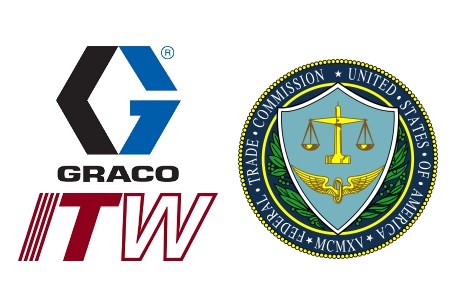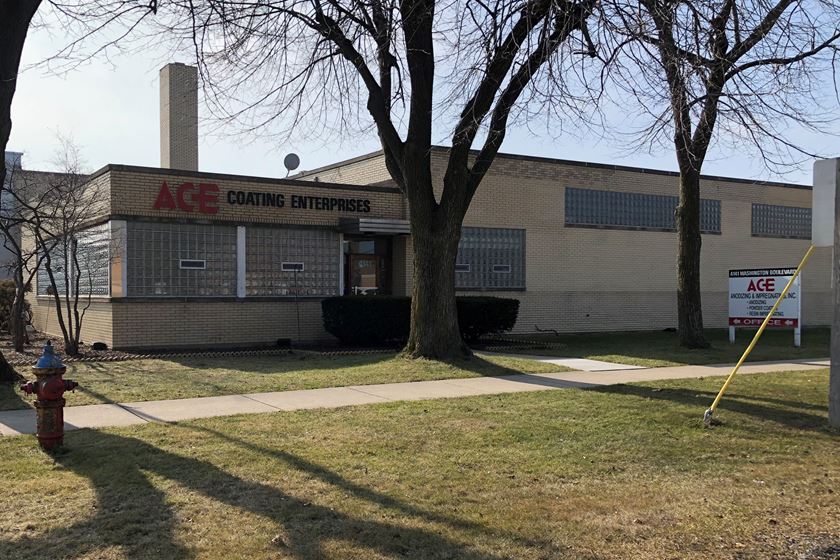The Federal Trade Commission will require Graco to sell the worldwide liquid finishing business of Illinois Tool Works Inc. and ITW Finishing LLC under a
proposed order, as part of a settlement resolving charges that its $650 million acquisition of several ITW businesses would have been anticompetitive and led to higher prices and reduced innovation for the North American manufacturers who rely on this equipment.
From the FTC:
The
FTC challenged the deal in December 2011, alleging that it would harm competition in the market for equipment used to apply paints and other liquid finishes to a variety of manufactured goods, such as cars, wood cabinets, and major appliances. A consistent high-quality finish is critical to the manufacturing process. Manufacturers need reliable, proven finishing equipment and access to local service when problems arise.
The FTC charged that the combined Graco/ITW would control a dominant share of North American sales of industrial liquid finishing equipment generally, and a monopoly in the market for circulation pumps used in paint systems in automobile manufacturing plants specifically. The FTC also alleged that the proposed transaction would end the close competition between Graco and ITW, its largest competitor, reduce or eliminate the substantial one-time price breaks and other discounts Graco and ITW offer to their distributors, and lessen Graco's incentives to develop new products after the merger.
The FTC has now voted to accept the
consent agreement, which was signed by Graco, at the time the Commission issued its order to hold separate in March, and to approve a proposed order settling the charges in its administrative complaint in a manner calculated to ensure the continuation of the former ITW liquid finishing equipment businesses and assets worldwide (collectively, the Liquid Finishing Business Assets) as ongoing, viable businesses operating in the same markets as they were when they were acquired by Graco.
To accomplish this, the proposed order requires Graco to sell the Liquid Finishing Business Assets, including business activities related to the development, manufacture, and sale of products under the Binks, DeVilbiss, Ransburg, and BGK brand names, no later than 180 days from the date the order becomes final. The assets must be sold to an FTC-approved buyer, and if Graco has not sold them within the time required, the FTC may appoint a trustee to oversee their sale in a manner that complies with the terms of the order. Graco must continue to hold the Liquid Finishing Business Assets separate from its other businesses and maintain them as viable and competitive while it seeks a potential buyer.
The Commission vote to accept the consent agreement containing the proposed order was 4-0-1, with Commissioner Maureen K. Ohlhausen not participating. The proposed consent order will be published in the Federal Register shortly, and will be subject to public comment for 30 days, until July 2, 2012, after which the Commission will decide whether to make it final.
A consent order is for settlement purposes only and does not constitute an admission of
a law violation. When the Commission issues a consent order on a final basis, it carries the force of law with respect to future actions. Each violation of such an order may result in a civil penalty of up to $16,000.
RELATED CONTENT
-
How safely can they apply their wet paint over our powder coated parts?
-
Is your metal finishing software ready for an upgrade?
-
If you are performing a coating process that requires the use of a rectifier, you may have experienced the "no amperage" problem. Here's a look at the phenomenon and some solutions…
















